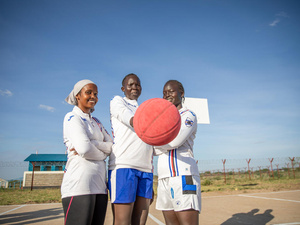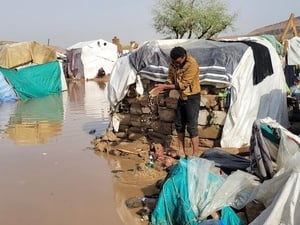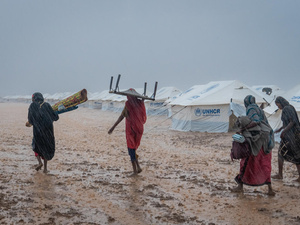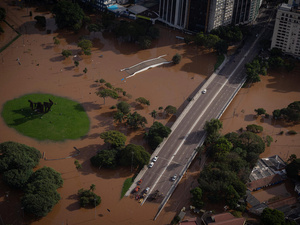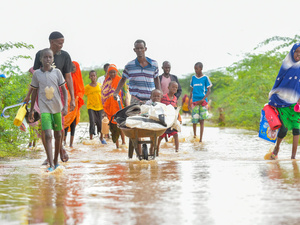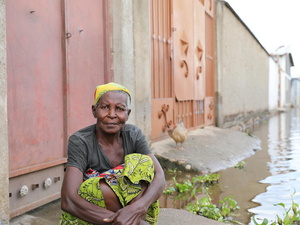Somalia: Displaced now face hunger, thirst, cold and rain on top of fear and trauma
Somalia: Displaced now face hunger, thirst, cold and rain on top of fear and trauma
UNHCR and its partners in the Somali region of Afgooye are distributing urgent aid supplies to thousands of people fleeing the fighting in Mogadishu. Our latest figures on displacement, issued late Friday, estimate that at least 321,000 people have fled the capital since the beginning of February - and the exodus continues. Describing a scene of growing chaos, a UNHCR staff member in Afgooye, 30 km west of Mogadishu, said a road linking the area to the capital reopened yesterday morning and was filled with a continuous flow of displaced people.
He said the Afgooye area was jammed with more than 41,000 displaced Somalis. Hungry and thirsty crowds were becoming increasingly difficult to control, making aid distribution very difficult. UNHCR and its partners planned to distribute aid items to about 6,000 people yesterday. But many of the displaced still lack food and there is a severe water shortage. About five Somali aid organisations are attempting to truck relief supplies to Afgooye each day from Mogadishu, but the frequent closure of the road has disrupted deliveries.
Already weakened by hunger and thirst, the displaced urgently require shelter material for protection against rain and cold nights. UNHCR has been distributing plastic sheeting and other relief supplies in Afgooye since last Thursday, but trees remain the only shelter available to many of the displaced. In addition to plastic sheeting, UNHCR and its partners have been able to distribute sleeping mats and mosquito nets in Afgooye. We have airlifted aid supplies from our emergency stockpiles in Dubai to the Somali town of Baidoa, including blankets, plastic sheeting, jerry cans and kitchen sets for up to 20,000 people. More emergency airlift flights are scheduled for this week from Dubai, bringing in additional supplies for up to 15,000 people.
Many of the displaced have been traumatised by the loss of family and friends in the violence and there are several cases of children being separated from their parents while fleeing. In Mogadishu, local NGOs caring for the disabled have expressed growing concern to UNHCR over the physically impaired in the capital who are unable to leave.
The fighting in Mogadishu has sent an estimated 321,000 people fleeing since February, according to figures provided by a network of aid agencies and compiled by UNHCR. An estimated 111,000 people have headed to the nearby Shabelle provinces (43,000 in Middle Shabelle and 68,000 people in Lower Shabelle). Another 109,000 people have gone to Galgaduud region; 38,000 to Mudug; 25,000 to Bay region; and 24,000 to Hirran region. Another 14,000 are in other regions.

